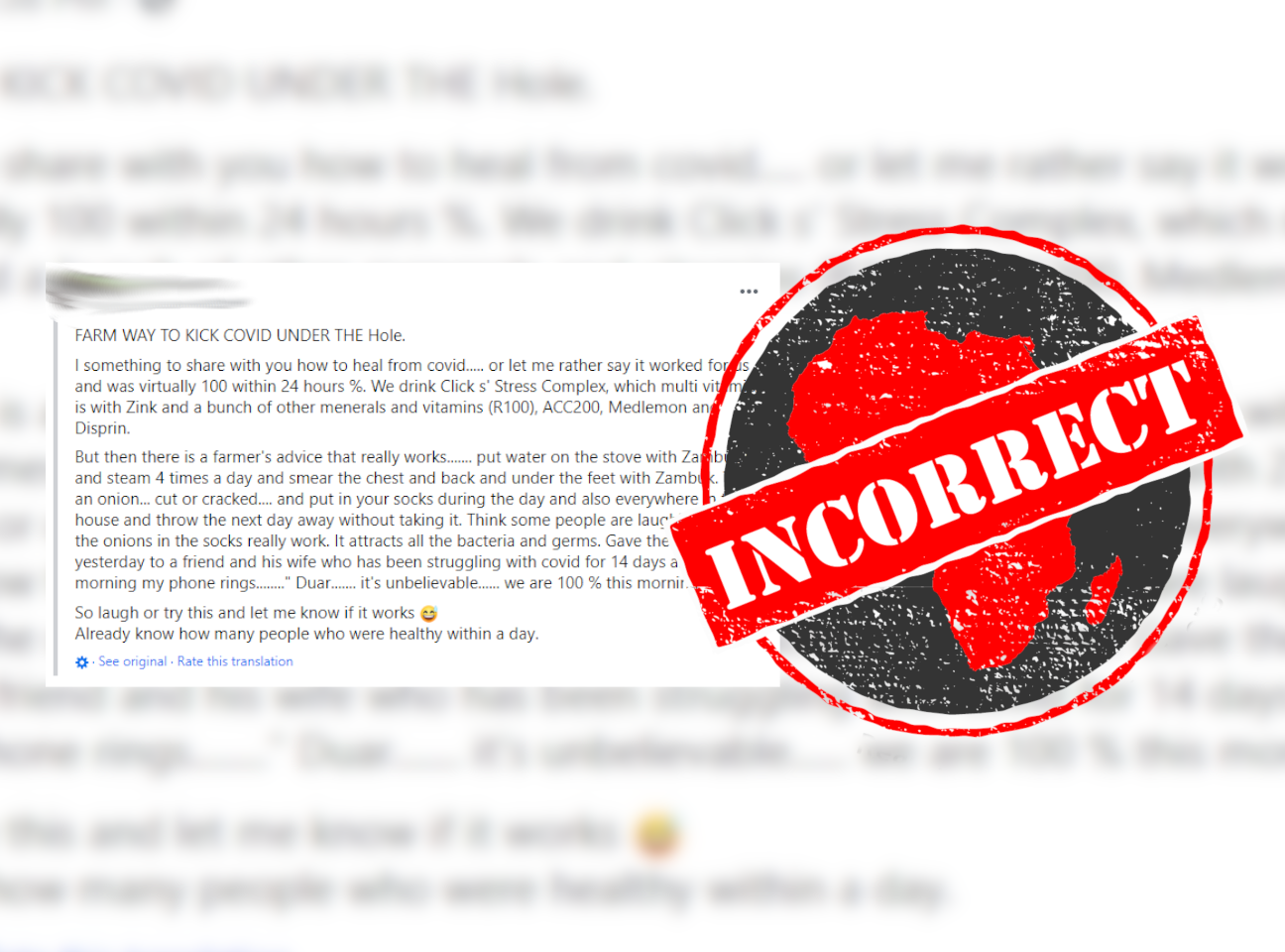A Facebook post shared more than 7,500 times claims Zam-Buk ointment and putting onions in your socks will cure Covid-19.
“Sit water op stoof met Zambuk in en stoom 4 keer n dag en smeer die bors en rug en onder die voete met Zambuk,” it says in Afrikaans. This means: “Put water on the stove with Zam-Buk in and steam four times a day and smear the chest and back and under the feet with Zam-Buk.”
The post also says you should put sliced onion in your socks and wear them around the house as the vegetable “attracts all the bacteria and germs”.
Africa Check has debunked claims about onions in your socks, as well as steaming as a cure for Covid-19. We looked into the post’s claim about Zam-Buk.

Zam-Buk does not cure Covid-19
Zam-Buk is a South African range of products, distributed by Bayer, that includes a herbal ointment, lip balm and chest rub. The chest rub is marketed as being able to relieve nasal and chest congestion, symptoms of Covid-19.
But Zam-Buk’s marketing makes no claim that the products can cure Covid-19. Bayer told Africa Check that Zam-Buk was meant to provide “temporary relief of pain and itching associated with minor burns, sunburn, insect bites and other minor skin irritations”. The company said it could also relieve muscular cramps and rheumatic pain.
Bayers said Zam-Buk ointment was for external use only. They did not recommend using it for steaming. “Zam-Buk is NOT a product indicated for the therapeutic relief of Covid 19,” they told Africa Check.
A previous Africa Check fact-check explains that steaming does not cure Covid-19 as the steam does not reach the cells infected by the virus. Inhaling hot steam can also be dangerous, causing burns and damaging the delicate lining in the nose.
Onion myth dates to 1500s
In 2019 Africa Check debunked a claim that putting sliced onions on your feet would “cure diseases overnight”. This remedy dates from the 1500s, when people believed that putting onions around the house would protect them from the bubonic plague.
Eating onions does have health benefits. But the US National Onion Association told Africa Check that “nothing is yet known on whether the compounds found in onion would have protective or inhibitory effects on Covid-19”.
In a statement, the association says: “It is important to consult a medical professional when considering options for prevention or treatment of serious diseases such as Covid-19.”
Republish our content for free
For publishers: what to do if your post is rated false
A fact-checker has rated your Facebook or Instagram post as “false”, “altered”, “partly false” or “missing context”. This could have serious consequences. What do you do?
Click on our guide for the steps you should follow.
Publishers guideAfrica Check teams up with Facebook
Africa Check is a partner in Meta's third-party fact-checking programme to help stop the spread of false information on social media.
The content we rate as “false” will be downgraded on Facebook and Instagram. This means fewer people will see it.
You can also help identify false information on Facebook. This guide explains how.





Add new comment